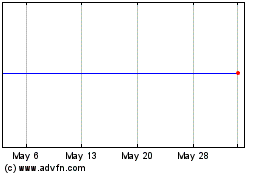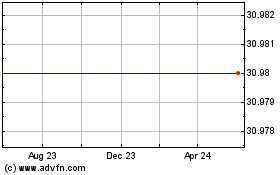Study Demonstrated Once-Weekly Exenatide LAR Improved Glucose Control in Patients with Type 2 Diabetes
June 10 2006 - 11:00AM
PR Newswire (US)
WASHINGTON, D.C., June 10 /PRNewswire-FirstCall/ -- Amylin
Pharmaceuticals, Inc. (NASDAQ:AMLN), Eli Lilly and Company
(NYSE:LLY) and Alkermes, Inc. (NASDAQ:ALKS) today announced
detailed results from a safety and efficacy study of the
long-acting release (LAR) formulation of BYETTA(R) (exenatide)
injection. Data from the study demonstrated that 86 percent of
patients using the higher of two doses of the once-weekly
formulation of exenatide were able to achieve recommended levels of
glucose control, as measured by hemoglobin A1C (A1C) with an
average improvement of approximately 2 percent compared to placebo.
These study findings were presented today at the 66th Annual
Scientific Sessions of the American Diabetes Association (ADA) in
Washington, D.C. The study was conducted in 45 patients with type 2
diabetes unable to achieve adequate glucose control with metformin
or a diet and exercise regimen. The patients received a once-weekly
subcutaneous injection of exenatide LAR (either 0.8 mg or 2.0 mg)
or placebo. After 15 weeks of treatment there was a 12-week safety
monitoring period during which no study medication was
administered. Dose-dependent improvements in A1C and weight loss
were observed at 15 weeks. At the beginning of the study, the
average A1C of study participants was approximately 8.5 percent. In
subjects receiving the 2.0 mg dose of exenatide LAR, the average
reduction in A1C was 1.7 percent compared to an increase of 0.4
percent in the placebo group. Those receiving the 0.8 mg dose
improved with an average decrease in A1C of 1.4 percent. In
patients administered 0.8 mg or 2.0 mg of exenatide LAR, 33 percent
and 86 percent achieved A1C levels of 7 percent or less,
respectively. None of the patients given placebo achieved this
target level of glucose control. A1C is a reflection of a person's
average glucose level over approximately three months and often
used by doctors as a measure of glucose management. Fasting blood
glucose levels were reduced by an average of 39 mg/dL in the 2.0 mg
arm and 43 mg/dL in the 0.8 mg arm compared to an average increase
of 18 mg/dL in the placebo group at week 15. Average fasting blood
glucose level at the beginning of the study was 179 mg/dL. Patients
who received 2.0 mg of exenatide LAR also experienced average
reductions in body weight of 8.4 pounds at week 15 with no evidence
of plateau at this point in time; body weight remained essentially
unchanged for the 0.8 mg and placebo groups. The most frequent
adverse event was mild nausea, experienced by 27 percent of
subjects in the 2.0 mg dose group and 19 percent of subjects in the
0.8 mg dose group compared to 15 percent in the placebo group. No
severe hypoglycemia was observed, and no subjects receiving either
dose of exenatide LAR withdrew because of adverse events. These
detailed findings supplement the preliminary results released in
2005. "In this study, the long-acting formulation of exenatide
improved glycemic and weight control and was well tolerated as a
combination therapy with metformin or as stand alone therapy with
diet and exercise," said Dennis Kim, MD, Senior Director, Medical
Affairs, Amylin Pharmaceuticals and an author of the study. "These
early results suggest exenatide LAR can be clinically beneficial to
patients with type 2 diabetes." Exenatide LAR uses the proprietary
Medisorb(R) drug-delivery technology developed by Alkermes. The
technology encapsulates active medication into polymer-based
microspheres that are injected into the body, where they degrade
slowly -- gradually releasing the drug at a carefully controlled
rate. On April 28, 2005, the Food and Drug Administration (FDA)
approved twice daily exenatide under the trade name BYETTA for use
by people with type 2 diabetes who are unsuccessful at controlling
their blood sugar levels despite using commonly prescribed oral
medications metformin, a sulfonylurea or both. Amylin, Lilly and
Alkermes are working together to develop a sustained release,
subcutaneous injection of exenatide for the treatment of type 2
diabetes based on Alkermes' proprietary Medisorb(R) injectable
long-acting release drug delivery technology. Exenatide LAR has not
been approved by the FDA for marketing in the United States. About
BYETTA BYETTA is the first incretin mimetic, a class of drugs for
the treatment of type 2 diabetes. BYETTA exhibits many of the same
effects as the human incretin hormone glucagon-like peptide-1
(GLP-1). GLP-1, secreted in response to food intake, has multiple
effects on the intestine, liver, pancreas and brain that work in
concert to regulate blood sugar.(1) Safety and Tolerability of
BYETTA Adverse events associated with BYETTA are generally mild to
moderate in intensity. In clinical trials, the most frequently
reported adverse event was mild-to-moderate, dose-dependent nausea.
With continued therapy, the frequency and severity of nausea
decreased over time in most patients. Patients receiving BYETTA in
combination with a sulfonylurea may be at a higher risk of
hypoglycemia or low blood sugar. To reduce this risk, decreasing
the dose of sulfonylurea may be considered. When patients begin
taking BYETTA, the symptoms, treatment and conditions that
predispose development of hypoglycemia should be explained to them,
and the patient's usual instructions for hypoglycemia management
should be reviewed and reinforced. Patients should also be advised
that treatment with BYETTA may lead to a reduction in appetite,
food intake and/or body weight, and that there is no need to modify
the dosing regimen due to such effects. BYETTA is not a substitute
for insulin in insulin-requiring patients. BYETTA should not be
used in patients with type 1 diabetes. Use of BYETTA is not
recommended in patients with end-stage renal disease or severe
renal impairment, or in patients with severe gastrointestinal
disease. BYETTA should be used with caution in patients receiving
oral medications that require rapid gastrointestinal absorption.
For complete safety profile and other important prescribing
considerations, visit http://www.byetta.com/. About Incretin
Mimetics Incretin mimetics is a distinct class of treatment in the
fight against diabetes. An incretin mimetic works to mimic the
anti-diabetic or glucose- lowering actions of naturally occurring
human hormones called incretins. These actions include stimulating
the body's ability to produce insulin in response to elevated
levels of blood sugar, inhibiting the release of a hormone called
glucagon following meals, slowing the rate at which nutrients are
absorbed into the bloodstream and reducing food intake. BYETTA is
the first FDA- approved incretin mimetic. About Diabetes Diabetes
affects an estimated 194 million adults worldwide(2) and more than
20 million in the United States.(3) Approximately 90 to 95 percent
of those affected have type 2 diabetes, a condition characterized
by failure of the pancreatic beta cells to adequately respond to
the increased demands for insulin that occur as a result of
obesity-related insulin resistance.(4) Diabetes is the sixth
leading cause of death by disease in the United States(3) and costs
approximately $132 billion per year in direct and indirect medical
expenses. Type 2 diabetes usually occurs in adults over the age of
40, but is increasingly common in younger people.(3) According to
the Centers for Disease Control and Prevention's National Health
and Nutrition Examination Survey, approximately 60 percent of
diabetes patients do not achieve target hemoglobin A1C levels (less
than 7 percent according to ADA guidelines(5)) with their current
treatment regimen.(6) About Amylin, Lilly, and Alkermes Amylin
Pharmaceuticals is a biopharmaceutical company committed to
improving lives through the discovery, development and
commercialization of innovative medicines. Amylin has developed and
gained approval for two first- in-class medicines for diabetes,
SYMLIN(R) (pramlintide acetate) injection and BYETTA(R) (exenatide)
injection. Amylin is located in San Diego, California with over
1200 employees nationwide. Further information on Amylin
Pharmaceuticals, its marketed products, and its pipeline in
metabolism is available at http://www.amylin.com/. Through a
long-standing commitment to diabetes care, Lilly provides patients
with breakthrough treatments that enable them to live longer,
healthier and fuller lives. Since 1923, Lilly has been the industry
leader in pioneering therapies to help health care professionals
improve the lives of people with diabetes, and research continues
on innovative medicines to address the unmet needs of patients. For
more information about Lilly's current diabetes products visit
http://www.lillydiabetes.com/. Lilly, a leading innovation-driven
corporation, is developing a growing portfolio of first-in-class
and best-in-class pharmaceutical products by applying the latest
research from its own worldwide laboratories and from
collaborations with eminent scientific organizations. Headquartered
in Indianapolis, IN, Lilly provides answers -- through medicines
and information -- for some of the world's most urgent medical
needs. Additional information about Lilly is available at
http://www.lilly.com/. Alkermes, Inc. is a pharmaceutical company
that develops products based on sophisticated drug delivery
technologies to enhance therapeutic outcomes in major diseases. The
Company's products include: the first and only long-acting atypical
antipsychotic medication approved for use in schizophrenia,
marketed worldwide by Janssen-Cilag (Janssen), a wholly owned
subsidiary of Johnson & Johnson; and VIVITROL(TM) (naltrexone
for extended-release injectable suspension), the first and only
once-monthly injectable medication approved for the treatment of
alcohol dependence. The Company has a pipeline of extended-release
injectable products and pulmonary drug products based on its
proprietary technology and expertise. Alkermes' product development
strategy is twofold: the Company partners its proprietary
technology systems and drug delivery expertise with several of the
world's finest pharmaceutical companies and it also develops novel,
proprietary drug candidates for its own account. The Company's
headquarters are in Cambridge, Massachusetts, and it operates
research and manufacturing facilities in Massachusetts and Ohio.
This press release contains forward-looking statements, which
involve risks and uncertainties within the meaning of the Private
Securities Litigation Reform Act of 1995. The forward-looking
statements are neither promises nor guarantees, and the businesses
of Amylin, Lilly and Alkermes are subject to significant risks and
uncertainties. Actual results may differ materially from the
forward-looking statements discussed in this press release. These
forward-looking statements include risks and uncertainties,
including but not limited to, that current or future clinical
trials will not confirm previous results; risks and uncertainties
that Amylin will be able to complete manufacturing scale-up and
construction and validation of its manufacturing facility on a
timely basis, or at all; risks and uncertainties inherent in the
collaboration with and dependence upon Lilly, Amylin and/or
Alkermes; risks and uncertainties regarding the drug discovery and
development process, including whether exenatide LAR will receive
regulatory approvals, be commercialized or prove to be commercially
successful. These and additional risks and uncertainties are
described more fully in Amylin, Lilly and Alkermes' filings with
the United States Securities and Exchange Commission, including
their recently filed Form 10-Qs. The parties disclaim any
obligation to update forward-looking statements. P-LLY REFERENCES
(1) Kolterman O, Buse J, Fineman M, Gaines E, Heintz S, Bicsak T,
Taylor K, Kim D, Aisporna M, Wang Y, Baron A. Synthetic exendin-4
(exenatide) significantly reduces postprandial and fasting glucose
in subjects with type 2 diabetes. Journal of Clinical Endocrinology
& Metabolism. 2003; 88(7):3082- 3089. (2) The International
Diabetes Federation Diabetes Atlas. Available at:
http://www.idf.org/home/index.cfm?unode=3B96906B-C026-2FD3-87B73F80BC22682A.
Accessed April 12, 2005. (3) Centers for Disease Control and
Prevention, National Diabetes Fact Sheet. Available at:
http://www.cdc.gov/diabetes/pubs/pdf/ndfs_2005.pdf. (4) Turner RC,
Cull CA, Frighi V, Holman RR. Glycemic control with diet,
sulfonylurea, metformin, or insulin in patients with type 2
diabetes mellitus: progressive requirement for multiple therapies
(UKPDS 49). JAMA. 1999; 281(21):2005-2012. (5) American Diabetes
Association. Standards of medical care in diabetes- 2006. Diabetes
Care 2006;29:S4-42. (6) Harris MI, Eastman RC, Cowie CC, Flegal KM,
Eberhardt MS. Racial and ethnic differences in glycemic control of
adults with type 2 diabetes. Diabetes Care. 1999;22:403-408. (Logo:
http://www.newscom.com/cgi-bin/prnh/20031219/LLYLOGO
http://www.newscom.com/cgi-bin/prnh/20050912/ALKERMESLOGO
http://www.newscom.com/cgi-bin/prnh/20060610/AMYLINLOGO )
http://www.newscom.com/cgi-bin/prnh/20031219/LLYLOGO
http://www.newscom.com/cgi-bin/prnh/20050912/ALKERMESLOGO
http://www.newscom.com/cgi-bin/prnh/20060610/AMYLINLOGO DATASOURCE:
Eli Lilly and Company; Amylin Pharmaceuticals, Inc.; Alkermes, Inc.
CONTACT: Lilly - Jamaison Schuler, +1-317-655-2111 office,
+1-317-997-1485 cell; Amylin - Alice Bahner, +1-858-642-7272
office, +1-858-232-9072 cell; or Alkermes - Rebecca Peterson,
+1-617-583-6378 office, +1-617-899-2447 cell
Copyright
Amylin Pharmaceuticals, Inc. (MM) (NASDAQ:AMLN)
Historical Stock Chart
From Jun 2024 to Jul 2024

Amylin Pharmaceuticals, Inc. (MM) (NASDAQ:AMLN)
Historical Stock Chart
From Jul 2023 to Jul 2024
